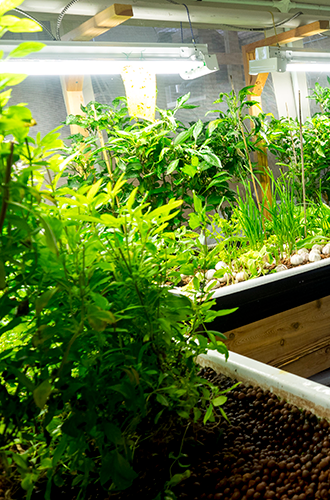Addressing environmental issues with an ecological or ecosystems approach
You will be prepared to find sustainable solutions for the mutual benefit of both natural systems and systems significantly affected by human activities.
- Explore, develop, and implement effective systems and sound solutions to address human impact on our natural environment
- Focus on applications to land and water resources as well as water, air, and soil quality
- Use and improve methods of land-use management, ecosystem services, ecological restoration, and waste management
Note: There are different environmental program options at the University of Minnesota. Learn the differences and find the one that's right for you (PDF)
Careers
Learn more about careers in environmental and ecological engineering and see a sample list of employers.
Curriculum
Environmental and ecological engineering integrates engineering principles, science, and design with the principles of biology and ecology.
Our curriculum has a strong foundation in math, science, and engineering fundamentals, including their applications to environmental and ecological systems, natural resources and their conservation, waste management, and environmental sustainability.
- Follow a 4-year plan to ensure you take courses in sequence (opens in new browser tab)
- Take courses and electives taught by internationally-recognized faculty
Minors, certificates, licensure
- Minors that complement environmental and ecological engineering include plant biology, soil science, water science, agronomy, geographic information science, environmental sciences, policy and management, and sustainability studies.
- Become a licensed professional engineer (PE)
- Become a Certified Ecological Restoration Practitioner-In-Training (CERPIT)
Admission and degree
You can apply for admission through either the University of Minnesota College of Science and Engineering or through the College of Food, Agricultural and Natural Resource Sciences (listed as "Pre-BBE").
You will graduate from the College of Science and Engineering with a Bachelor of Bioproducts and Biosystems Engineering with a specialization (or major sub-plan) in Environmental and Ecological Engineering, which will appear on your official transcript.
Research opportunities with our faculty
We have an active research faculty, and some may have opportunities for you to work on a project.
As a student with a specialization in environmental and ecological engineering, you may want to consider the following research areas within our department:
- Air Quality and Agricultural Systems
- Environmental Management and Sustainable Systems
- Land and Water
Also explore research opportunities through the Undergraduate Research Opportunity Program (UROP).
Contact us
If you have questions, would like to meet faculty, or tour our labs, please e-mail [email protected].
Get a tour of the University of Minnesota by scheduling a campus visit.
